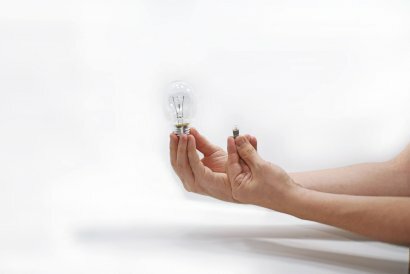10 Examples of Interesting Topics to Discuss or Present
Miscellanea / / November 29, 2021
Interesting topics to discuss or expose
The interesting topics to discuss or present are those topics that can be approached and discussed from very different positions.
A debate It is a meeting in which two or more people give an opinion on an issue, then argue their position and, finally, reach an agreement or conclusion. This type of communicative events is usually held in schools, parliaments, universities, television programs, among others.
A presentation can be oral or written. In the oral presentation one or more people speak about a topic, but unlike the debate, they do not present opposing positions, but the purpose of the exhibition is for the public to find out about something. The exhibitions are usually made in schools, jobs, political events, among others.
Characteristics of a debate
Every debate will have certain fundamental characteristics:
Characteristics of an exhibition
Every exhibition will have certain fundamental characteristics:
How to prepare a presentation or a debate?
Examples of interesting topics to discuss or present
- Education in the future. Education is a fundamental activity in the different stages of the life of human beings because it provides tools that will be used in different aspects of life and in the field professional. But what will education be like in a few years? Will it be virtual or face-to-face? What aspects of education should be improved? Can education be more inclusive and work related?
- The loss of natural spaces. Natural spaces, such as jungles, forests, fields and reserves of different types, are fundamental places for the life of humans, animals and plants. But many of these spaces are reduced by deforestation, climate change and other causes. How can these natural spaces be preserved? What are the consequences of its disappearance?
- Traditional science and pseudosciences. Traditional science is made up of theories that have scientific evidence and evidence and are supported by a community of scientists. Pseudosciences are theories that have no evidence or that are not proven by any scientific method. In relation to this topic, it is possible to debate or expose on the criteria of traditional science in comparison with the criteria of pseudosciences, the freedom of people to trust one or the other, among others stuff.
- Cryptocurrencies. Cryptocurrencies are virtual currencies that more and more people buy to make investments or to save. But there are still many people who are unaware of its operation and do not trust the security of this decentralized system. In relation to this topic, you can discuss or expose how they work, how they are bought, if they can be exchange for real money, if they are safe, if they should be regulated by state bodies or commercials, etc.
- Eating foods with trans fats. It is believed that the consumption of fat is a negative thing but it is not: fat is an essential nutrient for certain activities of the body, such as the production of energy. However, we know that not all fats are healthy. Trans fats, for example, can lead to increased cholesterol, heart disease, among other things. What kinds of products contain these fats? Why? Should all products state on the front of the package that they contain this type of fat?
- Use and care of water. Water is a fundamental resource for the life of people and other living beings but, although it is a renewable resource, it is consumed at a faster rate than its purification process delays and purification. So water is starting to run low in some places. How can water be used in such a way that it does not run out? How can contamination levels in drinking water be reduced? Who and how should regulate water care?
- Traditional professions and new professions. Traditional professions have a lot of social prestige and are in contact with infinite investigations that have enriched the knowledge that is studied in universities. The new professions, however, do not have as much academic tradition but, in some cases, they can be more interesting and necessary for today's society. How are these two types of professions different? Which are the most chosen and why? What career should I study to develop useful skills in the future?
- Art as an expression of identity. Art has aesthetic purposes but it is also a vehicle of communication in which the artist expresses issues related to her identity. In addition, it is a cultural production with which many people feel identified. But do all artistic productions have these characteristics? What about abstract art? What artistic productions best represent the public?
- The application of philosophy in other disciplines. Philosophy is considered the mother of many sciences, but over the centuries the disciplines were separated in such a way that each had its own rules and its own objects study. However, at present, philosophy is applied in social sciences, such as sociology and law, and in natural sciences, such as mathematics, medicine, and physics. How is philosophy applied in the other sciences? ¿Why is it so important? What relevance do ethics, logic and epistemology have in the different fields of knowledge?
- Gender stereotypes and social roles. Gender stereotypes and roles are expectations about what people are expected to do and be according to their gender. This influences how, according to their gender, people should look, what recreational activities they can do, what jobs they can do, how they should behave, among other things. But should everyone be able to do the same jobs? How are these stereotypes made and reproduced? How can they be modified so that society is more egalitarian?
See also:



